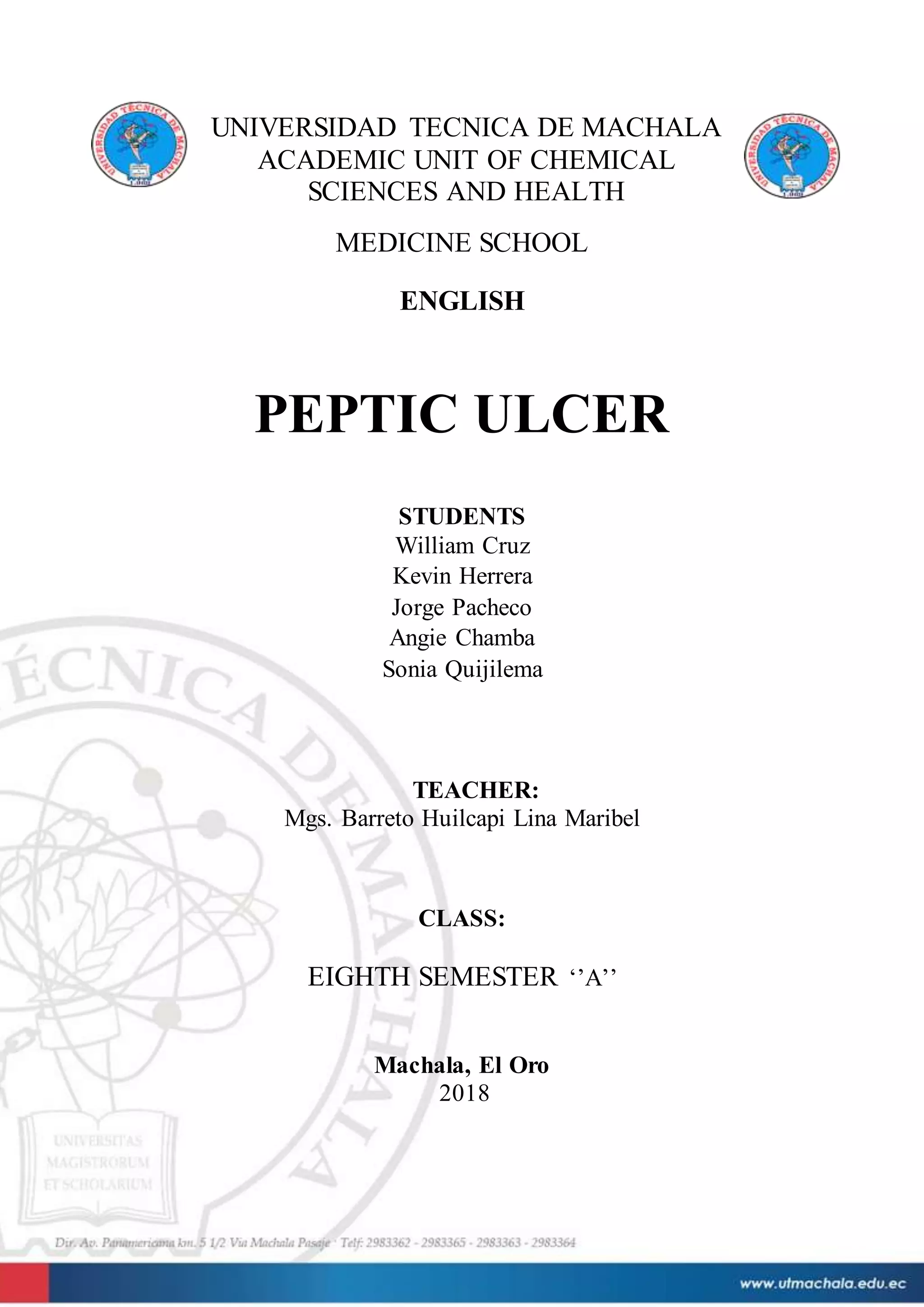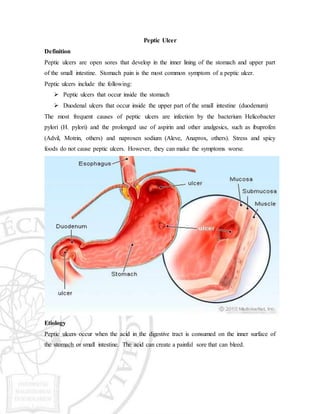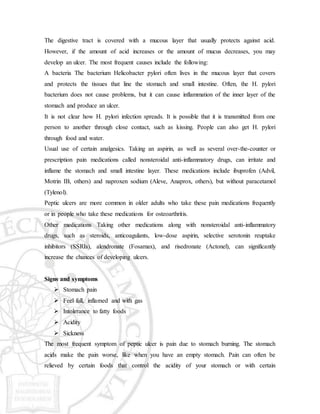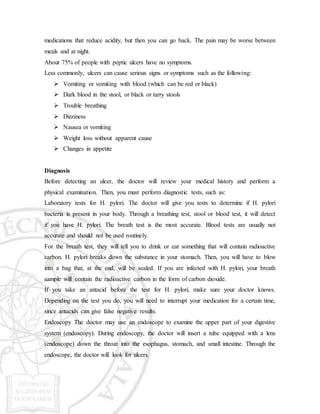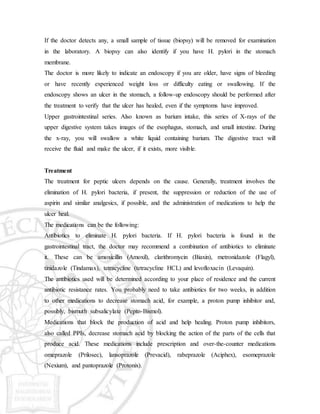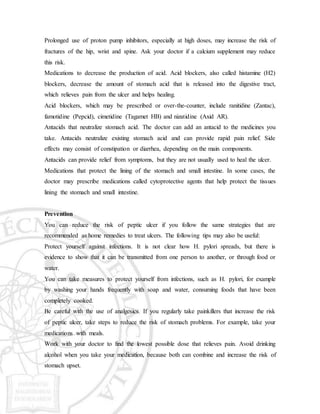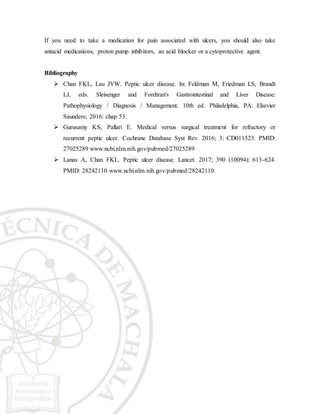This document provides information about peptic ulcers, including their causes, symptoms, diagnosis, and treatment. Peptic ulcers develop as open sores in the stomach or small intestine due to excessive acid. The most common causes are infection by H. pylori bacteria and long-term use of pain medications like ibuprofen. Symptoms include stomach pain that is often relieved by food. Diagnosis involves tests to detect H. pylori and endoscopy. Treatment focuses on eliminating the bacteria with antibiotics if present, reducing acid production, and promoting healing. Lifestyle changes like hand washing can help prevent ulcers by reducing infection risk.
